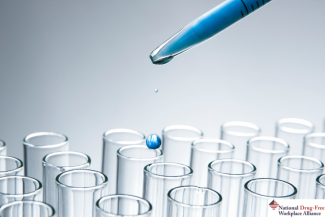Navigating the World of Drug Test Kits

As a small business owner, maintaining a drug-free workplace is essential for safety and productivity. Drug test kits are an invaluable tool in this process, whether for pre-employment screenings, random checks, or ensuring compliance with regulations. Understanding the different types of drug tests and their usage will help you make informed decisions while also keeping in mind regional laws and industry-specific rules, especially for safety-sensitive or DOT-regulated roles.
Types of Drug Test Kits
Urine Test Kits: Broad and Reliable Detection
Urine test kits are the most widely used due to their non-invasive nature and ability to detect a broad range of substances. They analyze urine samples for drug metabolites, providing results for drugs like marijuana, cocaine, and opiates. While effective, urine tests may not detect tampering or account for drug use beyond a few days, and regulations may limit their use in certain roles, such as those subject to DOT guidelines.
Saliva Test Kits: Quick and Convenient
Saliva test kits are ideal for on-the-spot testing. They detect recent drug use, usually within a few hours to a day, and offer quick results—making them useful for workplace screenings or roadside checks. However, they are less accurate for detecting older drug use and may not be acceptable for all roles, particularly in safety-sensitive positions.
Hair Test Kits: Long-Term Detection
Hair test kits offer a unique advantage by detecting drug use over an extended period (up to 90 days). By analyzing hair follicles for drug metabolites, these tests provide insight into long-term use. However, they come with a higher cost and may be seen as more invasive. Businesses should ensure that hair testing is compliant with local and industry-specific regulations, especially in safety-sensitive environments.
Surface Drug Test Kits: Detecting Residue
Surface test kits are used to detect drug residue on surfaces such as work equipment, vehicles, or office areas. These kits are helpful for ensuring that the workplace remains free from drugs but may not be suitable for all situations due to contamination risks or variability in results.
Key Considerations: Benefits, Limitations, and Legal Compliance
Drug test kits offer several benefits, including fast results, cost-effectiveness, and non-invasive testing. They can act as a deterrent to drug use, helping to maintain a safer workplace. However, these kits are not without limitations. They may have a limited drug detection spectrum, and false positives or negatives can occur, so confirmatory testing may be necessary for legal purposes. Additionally, interpreting results accurately requires careful attention to instructions.
Moreover, it’s important to remember that different regions and industries have specific rules regarding drug testing. For example, safety-sensitive roles or positions regulated by the DOT may have strict guidelines on which tests are permissible, so it’s essential to verify compliance with local laws and industry standards before implementing a drug testing program.
Drug test kits are a valuable tool for small business owners who want to maintain a drug-free workplace. Understanding the types of tests—urine, saliva, hair, and surface—and their respective advantages and limitations will help you make the best decision for your business. Always ensure compliance with relevant legal requirements and consult professionals when legal consequences are involved.
Source: Berman, M. (2024, June 24). Navigating the World of Drug Test Kits: A Comprehensive guide for users - Programming Insider. Programming Insider. https://programminginsider.com/navigating-the-world-of-drug-test-kits-a-comprehensive-guide-for-users/